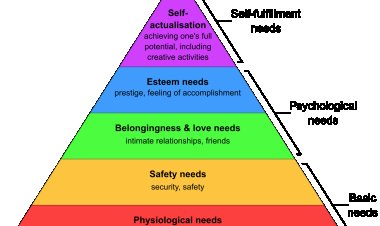How to Talk About Your Values in a Relationship
Ask them about their past romantic relationships, their friendships, and their family ties. Ask them what their core values are and why. Ask

The thrill of discovering a romantic or sexual partner in the modern world is undeniable. This is especially true when they share the same feelings for you and aren't shy about letting everyone know it.
Even though it's easy to get carried away in the beginning of a love story, it's important to keep your feet on the ground while you work toward your future together. In particular, determining the course of your relationship can benefit from talking about the values you and your spouse share.

However, merely having the conversation isn't enough to achieve the desired outcomes. The best way to approach the conversation is one that leaves opportunity for mutual disappointment, compromise, and eventual agreement. We'll address how to talk about values in a relationship, when it's appropriate to do so, and how to recover when things don't go as planned.
Core Values to Be Discussed in a Relationship
You and your partner should talk about, agree on, or make concessions regarding the following issues early in the relationship as a reference for the key value dialogues you and your partner ought to have. This will help you and your future spouse make the right decisions as a couple.
Commitment Styles
To a newly dating couple, or even one who has said "I love you" and seems to be in a great relationship, this conversation may sound strange. Relationship commitment can mean different things to different people.

Some people don't feel satisfied with their relationships until the formal paperwork is completed and the "I dos" are exchanged, while others are happy to date their life partner indefinitely. Understanding where you and your partner fall and how to proceed if you are on different frequencies is crucial.
Religion
Religion plays an integral role in the daily lives of many people. In such situations, sharing a faith with someone can be a deal breaker. However, in many cases, a partner's religious beliefs may merely serve as a point of differentiation.
Even if the latter is the case, it's still necessary to consider the expectations of your partner and their extended family members, especially if they are religious, when it comes to problems like childrearing.
Family
When in a stable partnership, it's natural to want to start a family. However, for many people, having children is not part of their ideal future.
Preliminary consideration should be given to long-term family goals, not just those involving offspring. It's also important to talk about how often you may expect to see relatives who don't live nearby, such as distant cousins or aging parents. It's possible that your significant other doesn't feel entirely at ease hanging out with your relatives.
Lifestyle Habits
It can be difficult for a relationship if you and your partner are unable to spend much time together in person due to your busy schedules. It's also crucial to talk to your spouse openly and early on if either of you has habits like smoking or gambling that could potentially cause animosity in the relationship.
Finances
Having a difficult conversation about money with someone you intend to spend a lot of time and the rest of your life with is inevitable. Find out how they handle their finances, talk about the costs of living you would have to split, and plot out a future together.
:max_bytes(150000):strip_icc()/GettyImages-1234228119-65be85b8a9e246b5a32be3746e46d779.jpg)
Later on in the relationship, you and your spouse should talk about your respective debt loads and annual incomes. If your partner wants to be the sole provider while you stay at home with the kids, that's something to discuss.
Sexual Relations
A relationship's sexual dynamics can be quite nuanced. That's why it's crucial to have open conversations about sexual goals, obstacles, and other factors with your partner.
If you and your spouse aren't experiencing the kind of deep emotional connection you want, it's important to talk about it. Establishing this rapport and trust early on will make discussing more delicate topics much simpler. The fact that you've begun talking about sexual dysfunction or how to improve intimacy in the bedroom is a huge plus.
When Is it Too Soon?
While it's crucial to have an open and honest discussion about your beliefs in a relationship, it's not necessary for this conversation to take place as soon as sentiments are brought up.
It's best to wait a while before bringing up the value conversation, no matter how real and all-consuming your sentiments are.
When a couple has just been dating for a matter of weeks, it may be too soon to broach topics like starting a family and having children. When starting a new relationship, it can be awkward to ask personal questions like "how much do you make?" or "what do you think about putting your parents in a home?"
In the first few weeks and months of a new relationship, it may be more productive to focus on getting to know each other and figuring out whether or not you're a good fit.
How to Do It?
Money, sexual compatibility, and long-term objectives are all touchy subjects to broach in conversation. If you're having trouble getting these talks started, remember that the overarching aim should be open and honest communication, regardless of the specific strategies you use to initiate them.
To kick up discussions, you and your partner can agree on a specific time to meet. You might also wait for a time when a conversation about values is already going on around you and your partner.
When to Compromise
This indicates that there is a possibility that they may not share your vision totally, despite how much you would like for your values to align.
It's crucial to find a compromise with your partner in such a situation if you want the relationship to last. An equitable method of dividing living expenditures, such as going 50-50 or 70-30 when salaries are uneven, may assist settle financial issues if the couple is hesitant to pool their finances in a joint account.
What If the Conversation Doesn't Go Well?
If you continue with your spouse waiting for a change of heart on their part, or in an attempt to convince yourself that said value isn't as important to you—you may find that animosity may rise when they remain adamant about their viewpoint. If you find out that your partner doesn't share your values, putting up with their discontent may feel like too high a price to pay.
Sometimes breaking up with a partner is the only option when problems like these arise. Since there exists someone in the world who shares your beliefs, prioritizing your own pleasure and well-being should be a top priority. While starting over is never pleasant, it is always worthwhile if it means increasing your chances of a happy ending.













